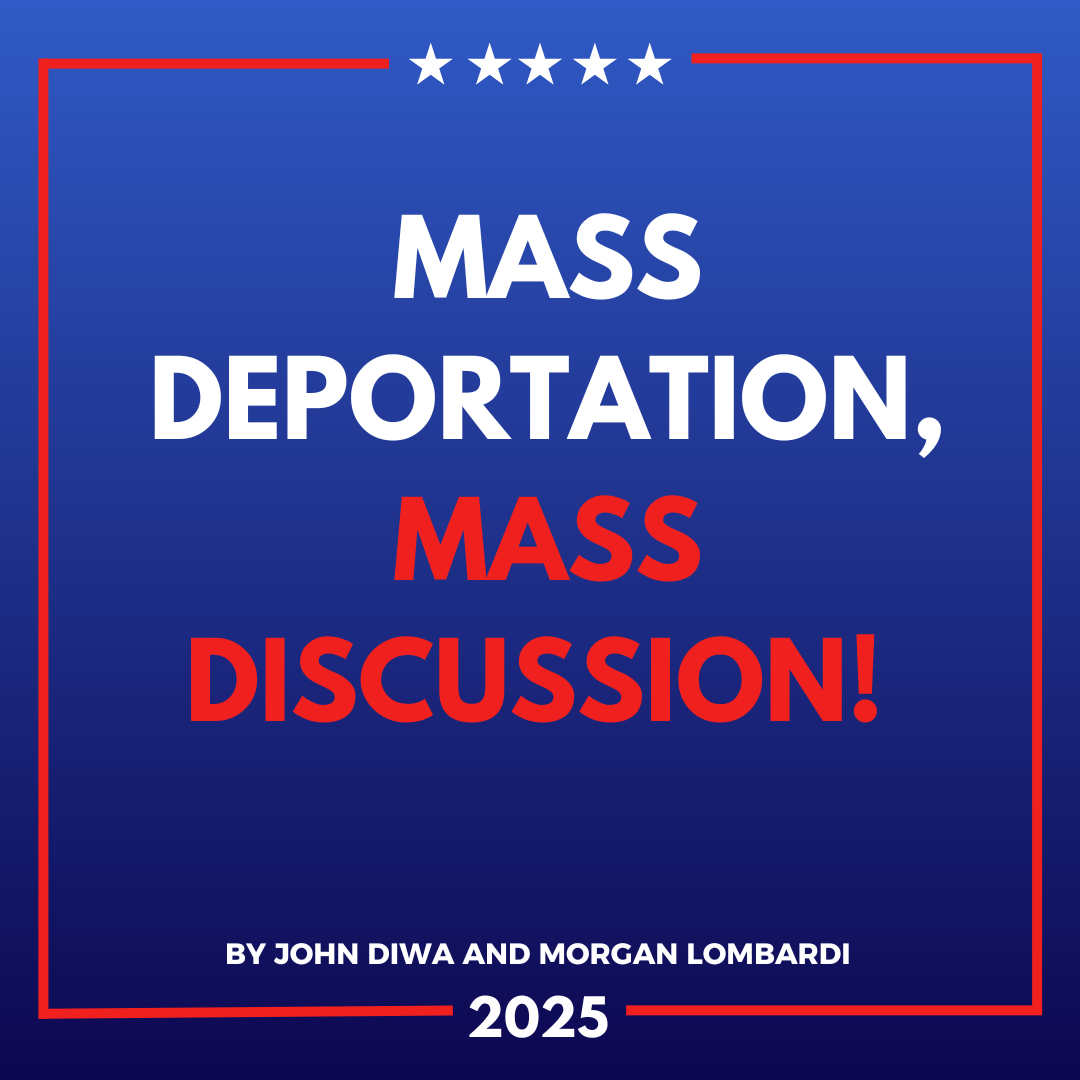President Donald Trump’s stance on mass deportation involves a plan to remove a large number of undocumented immigrants from the U.S. His administration reportedly aims to prioritize the deportation of individuals with criminal records, though it also includes plans to target anyone in the country illegally.
This policy is part of his broader efforts to crack down on illegal immigration, reduce border crossings, and enforce stricter immigration laws. The plan sparked intense debate, with critics arguing it could lead to family separations and human rights violations, while supporters viewed it as a necessary step to secure U.S. borders and uphold the rule of law.
“Though I can not say I am an expert [on] Trump’s agenda on deportation, I have heard what he has been doing and what he has planned,” said sophomore Ava Phan. “I do not support President Trump’s agenda. [It will] not only displace many families, but it will [also] disrupt the current economic flow we have in America.”
Many others in the student community agree that the deportation efforts will run ineffectively, including junior Bethany Wilmoth.
“At the end of the day, I don’t think mass deportation will prove immensely successful,” said Wilmoth. “The Trump administration has placed so many eggs in one basket, promising so much so long as we complete this goal of deporting as many migrants as possible.”
Wilmoth is concerned for the safety of immigrants.
“ICE raids are becoming more frequent. Whether it be through schools, through work, or in the comfort of your own home, it’s clear that Trump’s plan is to make all migrants fearful with little to no safe place,” said Wilmoth.
Senior Chloe Nelson can see both sides of the issue.
“I think this [mass deportation] could be both beneficial and detrimental to the community,” said Nelson. “We will be losing workers for unfavorable jobs …But, it also frees up resources to take care of the documented American Citizens who may need them.”
Sophomore Michelle Cirbo agrees.
“Taxes would go to different areas that need it,” said Cirbo. “Issues such as public transportation, public safety, and schools would get the funding they deserve. So, the money that is used to house and feed immigrants would go to [American citizens].”
Cirbo explains that a benefit would also be public safety due to gang related activity; however, deportation at any scale can have unintended consequences.
According to a research paper written by Maria Micaela Sviatschi of Princeton University, “Deportation policies can backfire by disseminating not only ideas between countries but also criminal networks [and] spreading gangs. In this case, across El Salvador, and spurring migration back to the United States.”
As the debate over mass deportation continues to unfold, the impact of Trump’s policies remains a polarizing issue for many Americans. The future of the policy will likely depend on ongoing legal challenges, public opinion, and the priorities of the next administration. One thing is clear: the issue of immigration will remain at the forefront of national conversation, and conversations here at Salem, shaping the direction of U.S. policy for years to come.








